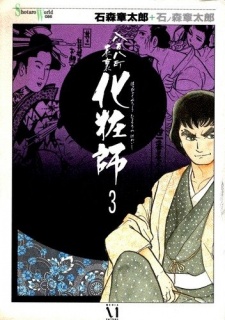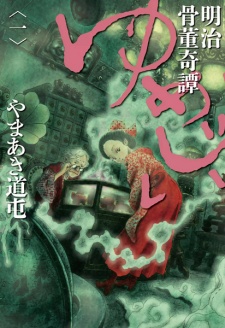Jun 6, 2022
Tono Monogatari is a sort of series of passion projects: Kunio Yanagita was dedicated to recording the spiritual folktales of the Tono region that were in danger of disappearing from modernization; Shigeru Mizuki, the godfather of yokai manga, seeked to further immortalise these tales in manga form; and adding English translator and Mizuki scholar Zack Davisson into the mix, he shared his love for the mangaka by bringing the work to the Anglosphere.
Admirable motivations aside, the work itself is not the most fulfilling. For the most part, the stories of Mizuki's Tono Monogatari are not individually impressive: they’re short, abrupt, and hardly memorable. But
...
what I got from Tono Monogatari was not a book that was aiming to present a series of individually striking, well-written stories. Rather, the collection functions to give a sense of the land and the people of Tono, how the inhabitants interacted with the environment and the stories that arose from this. So yes, a story about a man who sees a yokai and then goes home and dies in his sleep is slight, not particularly exciting, and the reader may wonder why it was even told. However, even this short a story provides a cultural commentary of the people.
Still, this doesn't necessarily alleviate the reading experience. As mentioned, the stories are short, and the book is packed with them, with each of the 29 “chapters” containing multiple stories which start and stop all over the place, sometimes within the same page. Having not read the original Tono Monogatari, I can’t attest for how jammed it all feels. But as for the brevity of the tales, in my experience, old Japanese short stories simply can be quite abrupt, probably due to them originating from a time which were quite removed from our modern sensibilities of what a story should be. If anything, Davisson suggests that Mizuki embellished these stories in small ways by filling in the gaps here and there. For instance, it's neat when Mizuki injects himself into the stories, like when hearing a storyteller relating a tale, he finds himself amongst said story’s characters, witnessing the events as if he were there. My favorite aspect however was perhaps the artwork, which is beautiful and fantastically detailed, often leaving me poring at the backgrounds when the stories didn't really retain my interest.
The English edition also contains Davisson's cultural insights which are quite helpful and interesting, particularly with the history of how Yanagita’s original Tono Monogatari book came to be. At times however, I felt that there were some explanations I wasn’t getting, like why some characters were so quick to jump to violence, such as when one man saw a mountain woman spirit and proceeded to shoot her down without hesitation, among other examples. I can make guesses, but it seems there were still some cultural gaps that I wasn't getting. The translation itself can also be odd in the way it chooses to romanise some words instead of translating them, without an explanatory note. Of course this adds some flavor to the text, but it would've been nice had it provided a complete picture.
While not really my cup of tea, Tono Monogatari is worthwhile for those with a cultural interest in Japan, yokai, or folktales. The stories here may feel clipped, but they act as a window into the culture.
Reviewer’s Rating: 6
What did you think of this review?
Nice
 0
0
Love it
 0
0
Funny
 0
0
Confusing
 0
0
Well-written
 0
0
Creative
 0
0Show all



.png)





















